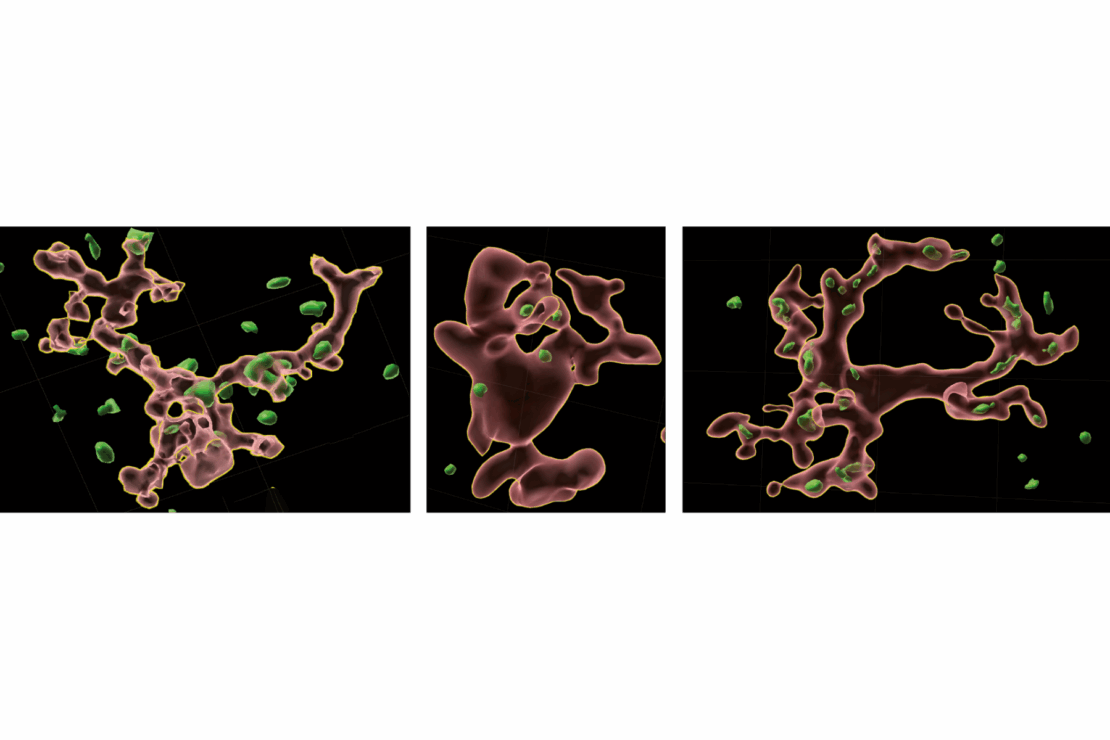FOXP1 syndrome: Potential therapeutic approach discovered for rare language development disorder

FOXP1 syndrome is a congenital disorder in which the brain development of affected children is severely impaired due to a genetic variant. To date, there are no treatments that target the root cause of the disorder. A research team from the Medical Faculty Heidelberg at Heidelberg University has now demonstrated in mice, that the inhibition of a specific enzyme in the brain can improve abnormal behavior and immune cell dysfunction in the brain. The results have been published in the journal Advanced Science.
The scientists and the parents of an affected child are available for interviews.

A research team at the Medical Faculty Heidelberg at Heidelberg University has, for the first time, identified a potential therapeutic approach for the rare FOXP1 syndrome, a congenital developmental disorder in children. This rare disease is genetic and is associated with intellectual disability, speech development disorders, and autistic behaviors. In an experimental study led by Professor Dr. Gudrun Rappold and Dr. Henning Fröhlich from the Institute of Human Genetics at Heidelberg University Hospital (UKHD), it was demonstrated that blocking a specific enzyme in the brain of a mouse model of FOXP1 syndrome can almost normalize abnormal behavior and malfunctioning brain immune cells. Further studies are now needed to show whether such an effect can also be achieved in humans.
Prof. Rappold’s research group has been studying the FOXP1 gene since 2010. At that time, she and her team discovered that the congenital loss of one of two naturally occurring copies of the gene in children leads to developmental disorders with a distinct clinical picture, now known as FOXP1 syndrome. The FOXP1 gene encodes a protein, a so-called transcription factor, which regulates the activity of numerous other genes and plays an important role in brain development. FOXP1 works alone or together with FOXP2 – a protein with a similar genetic structure that plays a key role in language development. Notably, impaired language development is also a key symptom of FOXP1 syndrome, alongside other intellectual disabilities.
In the current study, the researchers show that mice with the loss of one copy of the Foxp1 gene – a well-established model for FOXP1 syndrome – have significantly lower levels of a specific enzyme, Pde10a, in a brain region that controls behavior and movement. The resulting decreased enzyme activity disrupts important signalling pathways in the brain, along with abnormal activation of microglia, the brain’s immune cells, and disturbed connections between nerve cells.
When these mice were treated shortly after birth for four weeks with a specific drug that blocks the remaining activity of Pde10a, not only did behavioral problems such as social difficulties, anxiety, and hyperactivity substantially improve, but also the microglia returned to their normal shape and function. “By completely blocking Pde10a, the delicate balance of communication between brain cells appears to be restored,” said Prof. Rappold.
“The targeted inhibition of PDE10A could represent a therapeutic approach that acts directly at the molecular origin of the syndrome and can alleviate central symptoms of FOXP1 syndrome,” says Dr. Fröhlich. “Whether this approach is also successful in humans must now be clarified in future clinical research.” The PDE10A inhibitor used in the study had already been used in clinical trials for other diseases and was found to be well tolerated by participants, a positive sign for future studies of this drug (for example, NCT01175135).
“It’s encouraging to see how an idea has developed over the years into an independent field of research with clinical potential. The results are an important step toward a targeted therapy for this patient group,” said Prof. Rappold.
Further research is being supported by the International FOXP1 Foundation (info@foxp1.org), which is committed to promoting scientific knowledge and the development of targeted therapies for those affected. Scientists from the FOXP1 Foundation and parents of an affected child in Germany are available to talk to members of the press about their experiences.
Literature
Fröhlich H, Wang J, Althammer F, et al. Inhibition of Phosphodiesterase 10A by MP-10 Rescues Behavioral Deficits and Normalizes Microglial Morphology and Synaptic Pruning in A Mouse Model of FOXP1 Syndrome. Adv Sci (Weinh). Published online June 26, 2025. doi:10.1002/advs.202500623




